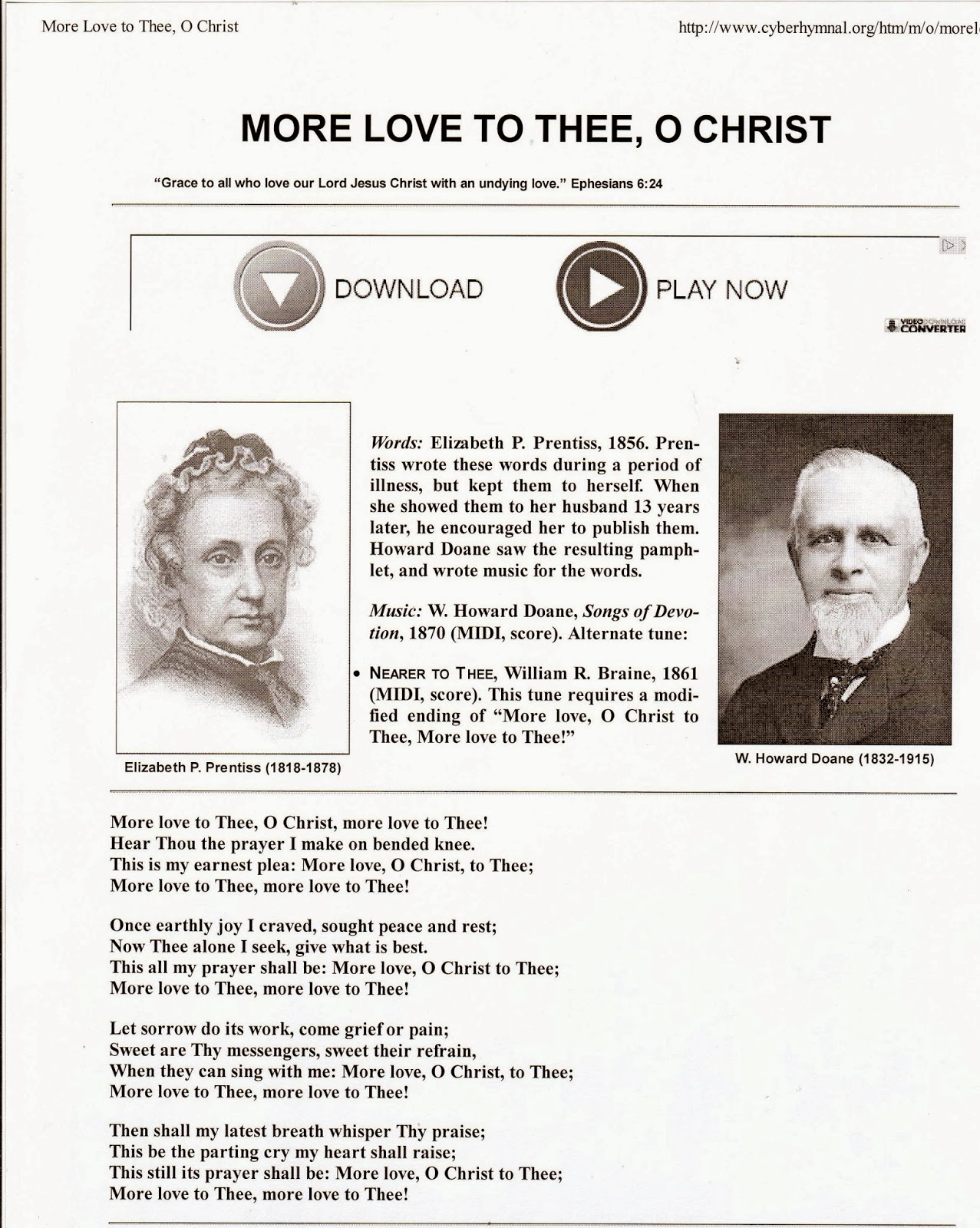“Simon, son of Jonas, do you love me more than these?” He said to him, “Yes, Lord; you know that I love you.” He said to him, “Feed my lambs.” “Simon, son of Jonas, do you love me?” He said to him, “Yes, Lord; you know that I love you.” He said to him, “Tend my sheep.” “Simon, son of Jonas, do you love me?” Peter was grieved because he said to him the third time, “Do you love me?” and he said to Him, “Lord, you know everything; you know that I love you.” Jesus said to him, “Feed my sheep. Jesus questioned Simon Peter about his love for Him using the Greek word for love, “agape.” Simon responded with another Greek word, “phileo.” This happened twice but the third time Jesus led with “phileo.” Peter recoiled at the third inquiry, but assured Jesus of his “phileo” love for…
Tag: <span>agape</span>
Hope maketh not ashamed. How does it work? Penti Ikonen and Eero Rechardt say “the reaction to the absence of approving reciprocity,” is shame. Gunnar Karlson, “…the main constituents concerning shame are its anchorage in the situation to which it refers; …perpetually objectified; …the revelation of an undesired self; …a history of frozen nowness.” Lynn Jacobs PH.D says “shame fear and guilt, these are the ‘feelings about feelings;’ the boundary keepers.” “ Experiencing a forbidden feeling,” evokes shame. These afore mentioned answers exist in the realm of analysis; empirical, rational, sometimes very insightful — Psycho/Physiological stuff. Wow! “a person with internalized shame believes he is inherently flawed, inferior, and defective.” John Bradshaw. For what it is worth, we have definitions. Adam and Eve were naked and not ashamed. They disobeyed. Shame began here. They became pale, disappointed, delayed, and dry. They got steep protective boundaries, they received limits, things quit…
For many people, an excuse is better than an achievement because an achievement, no matter how great, leaves you having to prove yourself again in the future; but an excuse can last for life. Eric Hoffer A great statement and wise observation, it grabs us because the folly of human nature often exposes itself so loudly. Hoffer above describes a person who thinks wrongly, but why? We can call him or her a legalistic thinker, because they view life as a proving, a measuring up to a standard, a trying to please or appease a serious onlooker who holds their fate. It’s no shock to us that this law-beaten type of individual must turn their mind toward evasion tactics and ploys of excuse making. Their life is drudgery. They stay with a project for a while and try it on. They wait for the prospect of fulfillment —on their own…
Sometimes God uses people to test our faith. Circumstances are difficult but nothing like the pure unadulterated face to face, heart to heart, psyche to psyche, flesh to flesh, hair raise. We need some skills, the main ones being; bullet biting, crow eating, cheek turning, appearance avoiding thereof, and downright Biblical longsuffering. Without these our faith shipwrecks quickly, truth fails, equity stands afar off. On the more serious side, it’s the shed blood of Christ, a Lamb without spot, which does the essential cleansing needed. Why needed? That blood cleanses away defilement of sin, sins, and also the mere interaction with “world” as God understands it. This Cosmos, this whole earth, lies in the hands of the wicked one as conveyed in 1John 5:19. For this reason, we find that Jesus, dying for the sins of men, nevertheless, did not put His trust in men, John 2:24 We likewise must not esteem…
“What God wants is that we would weep with people when things are being broken in their lives. Often we can understand and identify because we have been through it.” “When these strokes fester into wounds, they paralyze capacities to function in the receptivity of grace and truth. A person who is easily angered in his motions is most likely a very wounded person. His wounds probably are very deep, and he does not know how to regulate his responses. This brings feelings of guilt and defeat. These issues must be resolved by the grace and love of Christ.” Pastor Carl Stevens Sometimes a counselor will ask his client, “Have you made a commitment?” Corrective betterment goes this way, “ I (the counselor) am going to make a commitment to you (the client). “Why is this more good? To answer that question, we must only realize; a commitment remains a mere…
Is America becoming a post-Christian society? What does it mean for us Christians? It directly affects believers who try to win lost souls because an unsaved person’s ground of decision making may be skewed or obscured in the river of modern relativism. See, much of contemporary thought leans toward “fate” and “fatalism.” This “higher knowledge” quaintly un-hides itself in the colloquial phrase ” history repeats itself.” People who practice “fate” as a lifestyle live in idolatry and this God-demoting practice has many variations. It starts when some find it convenient to blame other persons, things, and events for their own sins. Adam and Eve originated this trend in Genesis 3. They duck blame and skirt responsibility. They use “wisdom from below.” We fall into the sucking vac hose called stupor. Rolling snowballs accumulate more snow, lies beget more lies, and hell is never satisfied, so says the Bible. God…
“The love of God does not find that which is worthy of His love, but rather creates it for Himself; but the love of man comes into being through the lovableness which it finds.” Luther Paul found a hard reality when he reported “the more I abundantly love you, the less I am loved,” in 2 Corinthians 12:15. Why no reward for his love? At deeper thought, why the opposite kind of reward did he receive than what was expected? “Natural human love expects something in return. But Paul is saying, “It doesn’t really matter to me whether you love me or not. I am willing to be completely destitute anyway; willing to be poverty-stricken, not just for your sakes, but also that I may be able to get you to God.”” This is a quote from Oswald Chambers. Jesus, one day girded Himself with a towel and began to…






